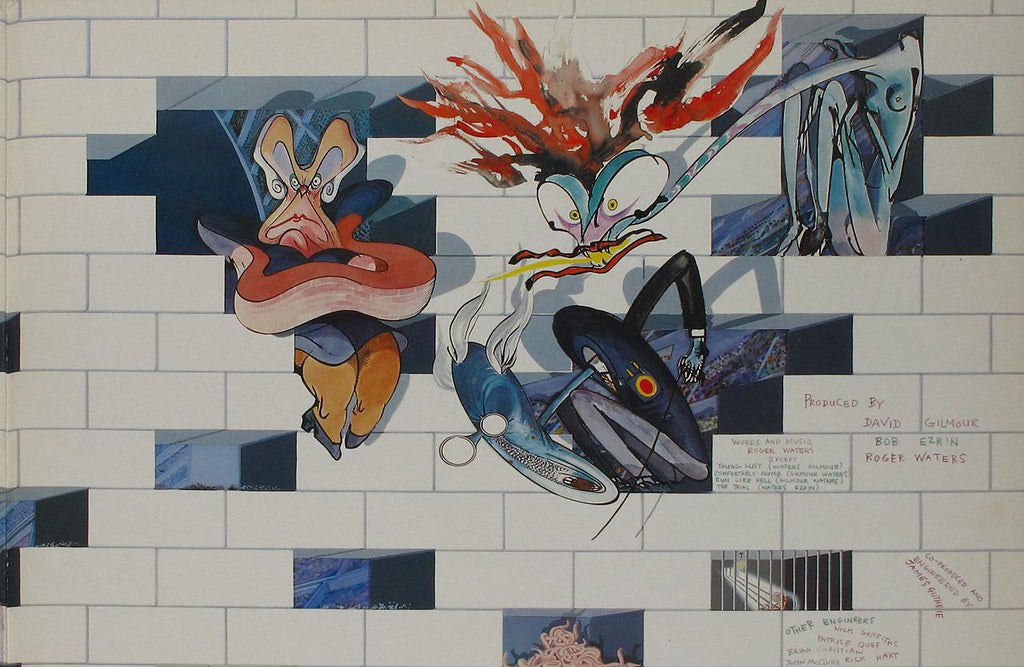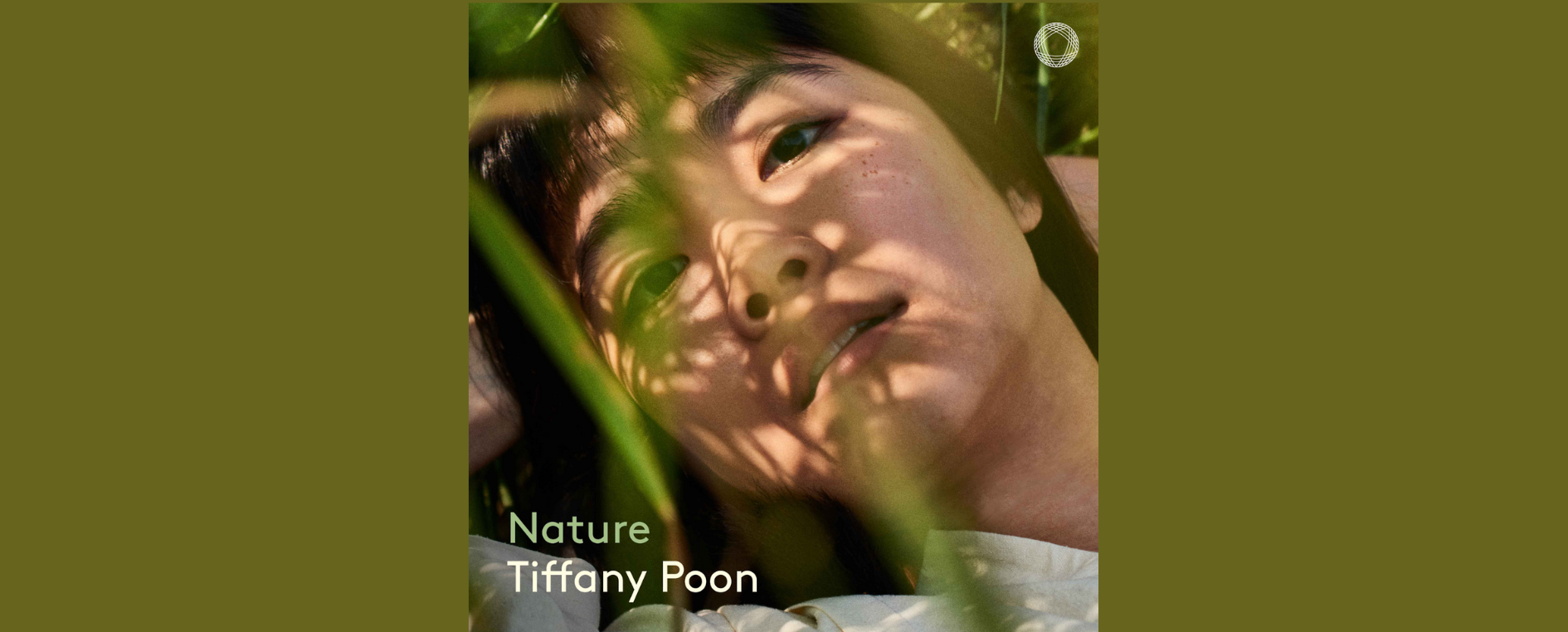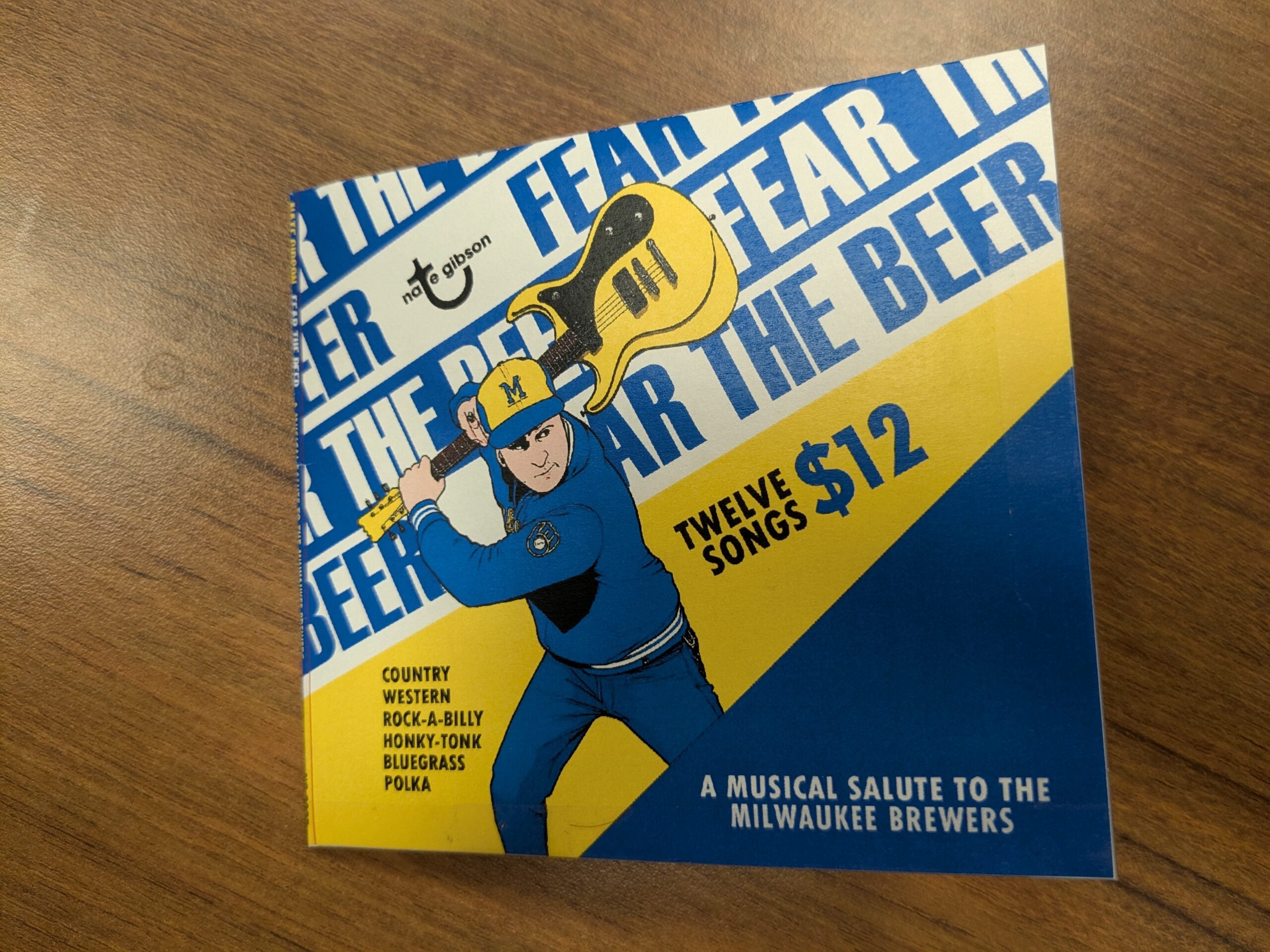Wisconsin comedian Gareth Reynolds on his debut standup album. Also, actress and writer Felicia Day tells us why we should embrace our weird. And author Seth Kaufman joins us for a Rock and Roll Thought Experiment about the concept album.
Featured in this Show
-
Actress And Writer Felicia Day Tells Us To Embrace Our Weird
Felicia Day is best know for her work in the web video world, both in front of and behind the camera.
She co-starred in Joss Whedon’s internet musical, “Dr. Horrible’s Sing-Along Blog.” She also created and starred in the pioneering web series “The Guild.” And she’s appeared in such TV shows and films as “Supernatural,” “The Magicians” and “Mystery Science Theater 3000.”
Day is also an author. Her latest book is called “Embrace Your Weird: Face Your Fears and Unleash Creativity.”
“I was really inspired over the years by how many people came up to me and told me that the things that I do online and offline inspired them to be more creative,” Day told WPR’s “BETA.” “I actually wrote a memoir called ‘You’re Never Weird on the Internet (Almost).’ ‘And I told my story of being a strange, homeschooled girl who went to college way too early and then moved to LA just expecting to be a star. And it didn’t quite work out that way.”
In the memoir, Day writes about all of the obstacles she encountered after moving to Los Angeles and how it led to her making her own web series way before anyone was creating that type of content. That web series — “The Guild” — made her career.
“When I told that story, a lot of people would come up to me after reading the memoir and say, ‘Hey, I started making things because of you. I started writing or making art,’” she said.
Between hearing those stories, and getting help for the anxiety and depression Day was dealing with, Day was inspired to write her second book.
“Inspiring people to get over those sort of humps and obstacles themselves made me want to make another book that was more about the reader than just about my journey,” Day said.
“Embrace Your Weird” takes the form of a workbook, complete with many whimsical sketches and a lot of hands-on exercises for the reader to delve into — making it an immersive, interactive experience. The result is that it gets the reader creating right away.
“I think I originally conceived it more as a workbook and less of writing, actually,” Day said. “I have a small daughter and I was reading books about how we learn and how when you get your body into something physically, especially when you’re writing or just doing, you learn it a lot easier. You learn it a lot more organically and it sticks with you. And so I knew that kind of the process of doing while reading was going to be really important to me.”
“I’m a person who lives online. My audience is always one click away from me,” she continued. “And so having that relationship with my audience where I talk about something like procrastination and then I hand it over to the audience, ‘What are you going to do with what I just said? Let’s play together.’ Having that sort of online interaction in a book form was kind of challenging. It was very challenging to crack the format of it. But when I did, I was like, ‘Oh, this is exactly what I wanted to make.’”
As Day writes in the book, “Playfulness is at the root of all creation.” This is the reason why she employed a very playful, stream-of-consciousness writing style that includes a lot of comic riffs and humorous tangents. This approach also helps take some of the intimidation out of being creative.
“I’m here because I’ve read self-help books over the years. I did ‘(The) Artist’s Way.’ I did a lot of other books that kind of helped me get over my barriers and the blocks that I had to get my voice out there. And after I had a baby, I kind of fell apart again because I had to reinvent myself,” she said.
Day says that creating “Embrace Your Weird” was kind of analogous to putting herself back together again.
“The core of it is about finding your identity in a playful way,” Day explained. When she revisited those books that had resonated with her earlier in her life, they didn’t affect her the way they originally had.
“I wanted to write my version that was a little less lecturey, a little less spiritual in a sense, and just fun,” Day said. “Because at the heart of it, if we’re playing, we’re doing something organic to ourselves. We’re doing something because of the joy of it, because in looking at my toddler, I realize everything she does is creative, and it’s all out of joy. There are none of these rules that we learn in life. And I wanted people to kind of unlearn all those rules.”
In her book, Day writes that we all have our own unique ideas and ideas that make us “weird.” For her, weird is also what makes her — and her readers — unique.
“I came to prominence in a sense when I started writing a web series about gamers. It was called ‘The Guild.’ I wrote and I acted in it. I produced it, I uploaded it to the internet,” she said. “Getting my voice out there in a way that other people said, ‘Oh, people don’t want to know about that. They don’t really understand gamers. They don’t believe that you’re a gamer because you’re a woman.’ All those things. And being brave and just kind of leading with that. I actually made my career in a sense.”
Day described one of her favorite exercises: drawing a toolbox. In it, the reader is meant to draw all of the things that make them stand out.
“That’s essentially your creator toolbox. So whenever you start to create something, you should look in your toolbox and see, ‘Oh, what is it that makes me unique? How is my perspective on the world as an individual going to stand out?’ That’s what we should mine for our artistic endeavors,” she said. “No one ever shared a video because it looked like every other video they watch, right? They share it because it’s unique and it pops out and they learn something about themselves or the world. You know, I think in life, we’re dissuaded from leading with our weirdness but really that’s where our greatest fulfillment comes.“
Day concludes: “I was a homeschooled kid, I went to college really early. I love board games, I love dragons. I don’t like to go out at night. I love cooking. There’s a lot of different things that make me kind of stand out from the average person. And we all have that. And so those are our strengths that we should really dive into because when we love those aspects of ourselves, I think it’s when we feel most settled and happy.”
-
Wisconsin Native Gareth Reynolds Returns Home For Debut Comedy Album
Growing up, Gareth Reynolds always knew he wanted to pursue a career in comedy. The Brown Deer, Wisconsin native joined his high school’s ComedySportz club and would later graduate to the professional circuit as a member of the Milwaukee branch of the improv troupe.
“Because of ComedySportz and doing theater and things in high school, I was like ‘OK, well now I know what I want to do and then I had to figure out how the hell to do it,’” Reynolds told WPR’s “BETA.”
Reynolds, who now lives in Los Angeles, returned to his home state last fall where he recorded his debut album, “Riddled with Disease” (recorded at The Comedy Club on State in Madison) and a few episodes of the popular history and comedy podcast, “The Dollop” he co-hosts with fellow comedian Dave Anthony.
Reynolds is the son of English immigrants and jokes that growing up in the Milwaukee area was sometimes a culture clash.
“There would be Milwaukee traits that I would take on that my little English mother would be puzzled and disturbed by,” said Reynolds. “It was also cool because I was able to be incubated by the English culture and then really was exposed through my friends and through social situations to Wisconsin and the things I embrace and love about Wisconsin.”
On his album, Reynolds riffs on a track called “Father Time” about his dad’s funny tick about always reminding him of the time and the time difference between Milwaukee and LA.
“You’re very aware now with phones when someone calls, but my father, when he leaves me voicemails will be like ‘2:30 p.m. here in Wisconsin, 12:30 p.m. your time,’” Reynolds said laughing. “I’ve made fun of him so much about it that now he just texts me ‘call me when you can.’”
Reynolds feels a strong affinity for Wisconsin, admitting that the only tattoo he has is of the Green Bay Packers logo. He says it demonstrates not only his love for the team, but a hometown pride. That’s why Reynolds felt it was important to return to Wisconsin to record his album.
“I do feel a particular connection to Milwaukee and Wisconsin and people from the Midwest in general because I think there is a culture that I just find so familiar. And there’s also, I think, the attitude of people is so refreshing,” he said, “And, I think there’s something nice about sharing the stuff you do with people you grew up with or with your parents or your family.”
Reynolds got his break on NBC’s short-lived hidden-camera farce “The Real Wedding Crashers” which he lightheartedly describes “as creatively stimulating as it was successful.” However, it positioned Reynolds both creatively and logistically to navigate the entertainment industry.
“There were connections I made through that show that behooved me for years and years to come, but little of it was from the actual show,” Reynolds said. “I met Steve Byrne who became a guy who took me under his comedic wing and got me on the road doing stand-up.”
Uninspired by the show’s content, Reynolds and his writing partner, Evan Mann, began creating their own ideas and would eventually wind up in the writer’s rooms for some of the most innovative TV comedy series of recent years including Mitchell Hurwitz’s trendsetting hit, “Arrested Development.”
“Mitch Hurwitz was so good to my writing partner and myself,” said Reynolds. “He moved us up to executive producers, which just is not protocol for that to happen in a year — for someone to change your credit — and Mitch really went to bat for us.”
In 2014, Reynolds was slated to be the first guest on comedian Dave Anthony’s history podcast, “The Dollop,” but the two clicked so well that Gareth ended up being the show’s permanent co-host.
“Part of the reason I think he asked me was because when we had been on shows together we had a lot of fun and we were making each other laugh,” Reynolds recalled. “And it from there just grew. We developed a good working relationship and friendship and I think it helped the show blossom.”
Reynolds hopes to build on his success going forward. There’s more touring ahead for both “The Dollop” and his stand-up career and much more writing as well.
“Every year just seems to get a little better so I have no complaints,” said Reynolds. “It’s truly a busy life, but a charmed one in many ways.”
-
Writer On Why Jethro Tull’s 'Thick As A Brick' Is The Most Monumental Concept Album
Fire up your Bunsen burners and break out those test tubes because we’re about to embark on another rock ‘n’ roll thought experiment. Seth Kaufman, author of “Metaphysical Graffiti: Rock ‘n’ Roll and the Meaning of Life,” joins WPR’s “BETA” to investigate the concept album.
“The audacity of doing a long-form musical suite which shouldn’t be that revolutionary but in fact it was,” Kaufman said. “Nobody had really done it. You had Broadway musicals, you had song cycles. But nobody in the rock world and in the pop music world ever really did something that sort of had a novelistic approach.”
“(The Beatles’) ‘Sergeant Pepper’ is considered by many to be a concept album. But the concept is very weak compared to what it later became, compared to (The Who’s) ‘Tommy,’ he added.
Kaufman says he’s not a big fan of concept albums because so many concept albums are made by progressive rock bands and he’s not a fan of “prog rock.” But there is one exception. The one progressive rock album he does love is Jethro Tull’s 1972 album, “Thick as a Brick,” which just so happens to be a concept album.
In his book, Kaufman makes the case that the album is “so good that it breaks the prog-rock cycle and even transcends the overuse of the flute,” which may well be his least favorite rock ‘n’ roll instrument. That’s a pretty audacious statement which is only fitting, given the subject of this story.
“(Pink Floyd’s) ‘Dark Side of the Moon’ is interesting, (Pink Floyd’s) ‘The Wall’ is great. The Genesis ‘Lamb Lies Down (on Broadway),’ There have been some very interesting, theatrical pieces. But to me, what they almost all lack is a sense of humor,” Kaufman said.
So why does Kaufman think “Thick as a Brick” is such a great album?
“Let’s start with the fact is that prior to making ‘Thick as a Brick,’ Ian Anderson, the leader of Jethro Tull, they made an album called ‘Aqualung.’ And many people interpreted this as a concept album. Ian Anderson said, ‘No, that wasn’t a concept album.’ And apparently, the story goes that he said, ‘I’ll show you what a concept album is.’”
“So then he designs an album that begins with the cover art,” Kaufman explained. It’s called ‘Thick as a Brick’ and on the cover is a fake news story about a poem written by an 8-year-old. And it’s an epic poem and it had won a prize from the Society for Literary Advancement and Gestation, SLAG is the acronym. But it was rescinded after a panel of psychologists determined the poet was unbalanced. And that the poem revealed an extremely troublesome attitude toward life, his God and country. So the lyrics are the poem that this 8-year-old supposedly wrote.”
“I may be going out on a limb here, I may be completely wrong but I choose to read this lyric in a way also as something of a jab at music critics and wise men and critics in general,” he continued. “Because the chorus is, ‘And you wise men don’t know how it feels to be thick as a brick.’ And in this case, thick means ‘stupid.’ And I kind of feel like he’s saying that maybe some of you guys out there think you’re smarter than you are.”
Kaufman also points to the act that “Thick as a Brick” is one continuous song.
“In terms of concept records, this is monumental. This out-progs everybody. Right? It’s a suite, it rocks, it’s a very inventive body of work. The lyrics go from hard rock to lilting, almost Middle Age folk,” he said. “It’s kind of a wonderful album. And it’s a very audacious thing because also, it’s not going to get played on the radio. There was a single that was released that kind of condensed things. But I don’t ever recall hearing it on the radio.”
“And it’s definitely pompous. To do what they did takes a lot of audacity, a lot of moxie, to say, ‘Hey, we’re going to do an album that you can’t play on the radio.’ You can’t even drop the needle and pick it and put it on your favorite parts or your favorite songs,” he said.
-
WPR Staffers (And Listeners) Share Their Favorite Concept Albums
There are many ways to define a concept album. Writer Seth Kaufman dedicated a chapter in his collection of Rock and Roll essays in “Metaphysical Graffiti: Rock ‘n’ Roll and the Meaning of Life” to dissecting the concept album. His favorite example is Jethro Tull’s 1972 album, “Thick as a Brick.”
That got WPR’s “BETA” thinking about what are some of the best concept albums. We even put the question to you alphas and heard from a few of you.
@misterG mentioned on Twitter that their favorite concept album is David Bowie’s “The Rise and Fall of Ziggy Stardust and the Spiders From Mars.”
Alpha Evan commented on the WPR Facebook page that his favorite concept album is Pink Floyd’s “Dark Side of the Moon.”
He writes that the song “Time” “has had a significant impact on how I perceive my own life and what work lies ahead in the future. And Alan Parsons’s clock chimes at the beginning just might be the most ingenious avant-garde arrangement ever.”
So we put a cross section of our staff together for a roundtable on their favorite concept albums.
Peter Bryant, WPR’s News and Classical Network and Program Director
“Personally, I think most concept albums aren’t concept albums. It’s a hook to make it stand out. Most of them promise a lot, but don’t deliver. But, if it’s a good collection of songs it doesn’t matter,” Bryant says. “My personal favorite is by Rick Wakeman — keyboard player for Yes — who did a lot of very silly concept albums with orchestra and choir. They have terrific music, but they’re a bit over the top. But, ‘The Six Wives of Henry VIII’ is all instrumental so it saves you from cringeworthy lyrics and it has a terrific variety of music on it, it’s beautifully played and I think it still holds up.”
Maureen McCollum, Host and Executive Producer of Wisconsin Life
“I like the concept album because I like when a collection of songs takes me somewhere and almost creates this movie within my head,” she says. “‘The Mollusk’ by Ween takes you on this bizarre, psychedelic, oceanic adventure.”
“The title track has this beautiful, swirling hook to it and so when I listen to this song, I feel like I’m floating on the ocean floor, along with the band and along with this little boy who finds a mollusk,” says McCollum. “It’s lovely, it’s a wonderful album. It’s all over the place and that’s why I love it so much.”
Steve Gotcher, Technical and Music Director of ‘BETA’
After citing some seminal concept albums like Frank Sinatra’s “In the Wee Small Hours” and Frank Zappa’s “Joe’s Garage” and some more contemporary ones like Janelle Monáe’s 2018 “Dirty Computer” Gotcher states that his all-time favorite concept album is The Decemberists 2006 ambitious “The Crane Wife“
“It’s based on a Japanese folk tale and also inspired by William Shakespeare’s ‘The Tempest,’” Gotcher says.
Episode Credits
- Doug Gordon Host
- Doug Gordon Producer
- Steve Gotcher Producer
- Adam Friedrich Producer
- Steve Gotcher Technical Director
- Felicia Day Guest
- Gareth Reynolds Guest
- Seth Kaufman Guest
- Peter Bryant Guest
- Maureen McCollum Guest
- Steve Gotcher Guest
Wisconsin Public Radio, © Copyright 2026, Board of Regents of the University of Wisconsin System and Wisconsin Educational Communications Board.






